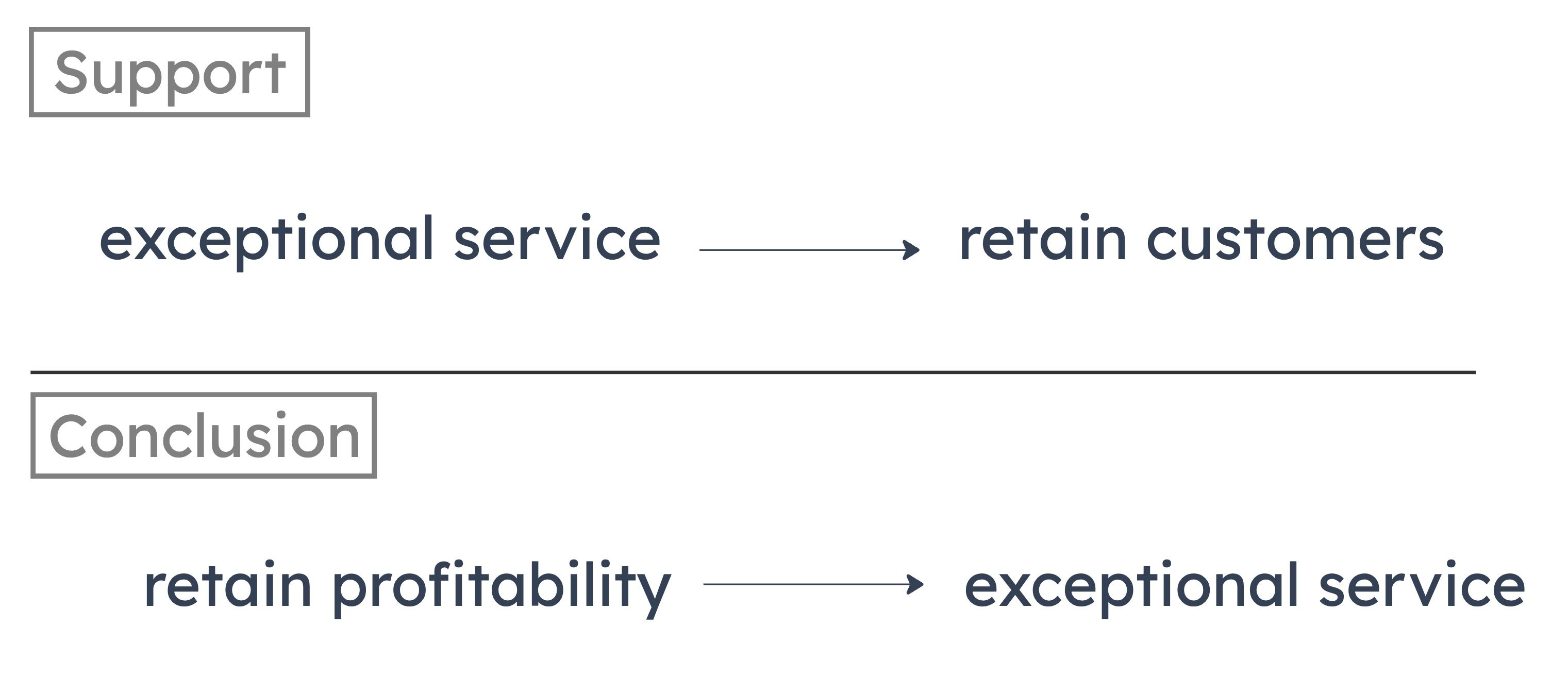LSAT 105 – Section 1 – Question 05
LSAT 105 - Section 1 - Question 05
February 1999You need a full course to see this video. Enroll now and get started in less than a minute.
Target time: 1:10
This is question data from the 7Sage LSAT Scorer. You can score your LSATs, track your results, and analyze your performance with pretty charts and vital statistics - all with a Free Account ← sign up in less than 10 seconds
| Question QuickView |
Type | Tags | Answer Choices |
Curve | Question Difficulty |
Psg/Game/S Difficulty |
Explanation |
|---|---|---|---|---|---|---|---|
| PT105 S1 Q05 |
+LR
| Flaw or descriptive weakening +Flaw | A
1%
156
B
4%
159
C
6%
160
D
5%
159
E
84%
166
|
131 144 157 |
+Medium | 147.243 +SubsectionMedium |
Large discount chains can make a profit even while offering low prices, because they buy goods in large quantities at favorable cost. This creates a problem for small retailers. If they try to retain their customers by lowering prices to match those of large discount chains, the result is a lower profit margin. But small retailers can retain their customer base without lowering prices if they offer exceptional service. Hence, small retailers that are forced to compete with large discount chains must offer exceptional service in order to retain their level of profitability.
Summarize Argument
The author concludes that small retailers competing with large discount chains must offer exceptional service in order to retain profitability. She supports with a conditional claim: if small retailers offer exceptional service, then they can keep their customers without lowering prices.

Identify and Describe Flaw
This is the flaw of mistaking sufficiency for necessity. The author treats “offering exceptional service” as necessary for “retaining profitability.” But according to her premise, “offering exceptional service” is sufficient, not necessary.
In other words, her reasoning is flawed because it fails to take into account the possibility that small retailers may be able to retain their profitability by some other means.
Note that the author assumes that “retaining profitability” either leads to or else is the same as “retaining their customer base...”
A
not all large discount chains do in fact make a profit
The argument is about the profit of small retailers, not large discount chains. Whether or not some discount chains fail to make a profit doesn't affect the author’s argument.
B
some large discount chains have lower profit margins than do some small retailers
The author is addressing what small retailers need to do in order to retain their customers and profit. It doesn't matter whether some large discount chains have lower profit margins than some small retailers; the author never compares the two.
C
small retailers are often motivated by things other than the desire for profit
This doesn't affect the author’s argument, because her conclusion is only addressing what small retailers need to do in order to retain profitability. Whether or not they want to retain profitability is irrelevant.
D
not all small retailers are forced to compete with large discount chains
This is irrelevant because the author’s conclusion isn’t about all small retailers. Instead, it only addresses “small retailers that are forced to compete with large discount chains.”
E
exceptional service is not the only reason customers prefer small retail stores
The author’s conclusion mistakenly treats “offering exceptional service” as a necessary condition, while in the premises, it’s merely sufficient. In other words, she overlooks the possibility that customers may prefer small retailers for other reasons.
Take PrepTest
Review Results
LSAT PrepTest 105 Explanations
Section 1 - Logical Reasoning
- Question 01
- Question 02
- Question 03
- Question 04
- Question 05
- Question 06
- Question 07
- Question 08
- Question 09
- Question 10
- Question 11
- Question 12
- Question 13
- Question 14
- Question 15
- Question 16
- Question 17
- Question 18
- Question 19
- Question 20
- Question 21
- Question 22
- Question 23
- Question 24
- Question 25
- Question 26
Section 2 - Logical Reasoning
- Question 01
- Question 02
- Question 03
- Question 04
- Question 05
- Question 06
- Question 07
- Question 08
- Question 09
- Question 10
- Question 11
- Question 12
- Question 13
- Question 14
- Question 15
- Question 16
- Question 17
- Question 18
- Question 19
- Question 20
- Question 21
- Question 22
- Question 23
- Question 24
- Question 25
Section 3 - Reading Comprehension
- Passage 1 – Passage
- Passage 1 – Questions
- Passage 2 – Passage
- Passage 2 – Questions
- Passage 3 – Passage
- Passage 3 – Questions
- Passage 4 – Passage
- Passage 4 – Questions
Leave a Reply
You must be logged in to post a comment. You can get a free account here.